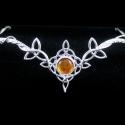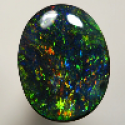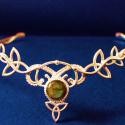-
General Context
When the world was in its infancy and Humans all spoke the same tongue, there were some cunning souls who - remembering that all Humans carried the spark of creation - crafted beings to carry out their whim and will. These peoples were of tremendous diversity, but generally served as assistants for various artisans, entertainers, and scholars.
This system faltered when Humans turned their attention to reaching Heaven by main effort. The servants of knowledge keepers, feeling themselves abandoned by their caretakers, sang up ships for themselves and sailed away on the four winds. The artisans' children had no desire to leave this world and spread out into the wilderness searching for more interesting options. These two general groups became the roots for the Fae and Drakes respectively.
Drakri
The Drake’s next meaningful contact with Humans was when Israel was wandering the wilderness after escaping Egypt. Some of the Drakri in that area noticed the spiritual Presence in the heart of the camp and approached discretely to see if Heaven would favor them with an acknowledgement. In return for their humble courage and yearning hearts, God taught them how to take Human form, what the rules were, and why (specifically along the lines of: “grow closer to My Children and, through them, closer to Me”. Thus relationship is a huge part of how and why).
In the following years many did so, and in the process came to use the Hebrew of their hosts. Their own communication had been purely body language, imagery, and scent/empath based until then. As loyal allies they weren’t stupid enough to interfere in Israel’s or Judah’s past, but they enjoyed the time spent among them and supported them as silent – often anonymous – gratitude for the gifts Heaven had granted on Its Children’s behalf.
Faeri
The Fae sailed long and far, leaving behind a handful wherever they touched land, before they eventually came to what would be the British Isles. There they fought a Human king to conquer the land for themselves, but he thwarted them. They settled on splitting the island evenly, but he tricked them into taking everything underground and only hidden, wild places; while the Humans received every land on which they could build, whether farm or city or mine. From this comes the folk understanding of 'Underground' or the 'Other' world and the Fae's heavy intermesh with Celtica.
Eventually the Fae solidified into Court and Common. Court had their strongholds in the northern and western parts of the island and used what would become the Goidelic branch of Celtic. Common lived primarily in the southern and eastern parts of the island and used what would become the Brythonic branch of Celtic. This implicit division was cemented when Melvas called Maleagant won the throne and aggravated the issue both with poor personal integrity and with deliberate policy. -
People, Places, Events
Maleagant and the Fae Civil War
One of the better known Faeri Sovereigns was a cunning, proud Unseliegh: Melvas Maleagant. While he kept his cruelty for outsiders none dared gainsay him, and he managed his politics with enough subtlety to never endanger his own position. However, when he invented the process of Kuthrem, he refused to teach his court how to protect themselves from it. This proved to be sufficient to turn the arguments against him into an actual movement , which quickly escalated into a civil war lead by Thalee and Mearaan.
Devastating as the war was (multiple Houses were completely destroyed and others were splintered), Melvas himself went largely unchallenged and unobstructed until one of the raids on human kingdoms brought with it Queen Branwyn of Camelot. This proved a critical error. Branwyn had married Kai Rakhesh and borne a son with him. By kidnapping her Melvas had brought the Drakri into the Fae war and Drakri are ever more interested in crushing threats than in proving a point. This support sufficed to end Melvas' power, but not Melvas himself.
Morgause was active as a master spy in the war for over five hundred years and was the first to discover the keys to Kuthrem. She first taught her own side how to protect themselves before seeking out Melvas. She made him her Kuth, then ordered him to die and never return, thus permanently removing his threat. Aside from helping people defend themselves she kept the knowledge itself very limited so as to minimize the chances of another such threat rising soon, and to this day is one of only a limited handful who understand enough to deliberately inflict this on another.
Camelot and the Camlann River Valley


